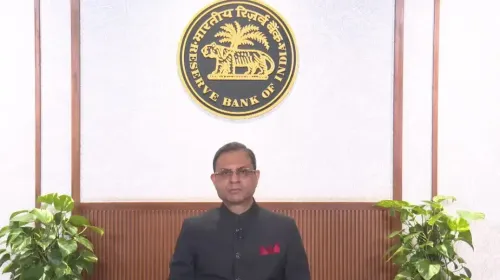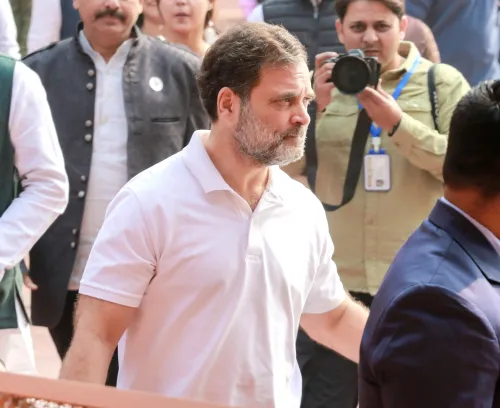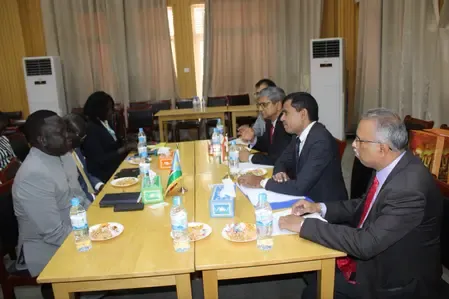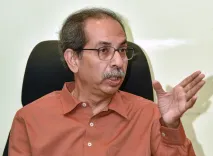Did the SC Confirm the Conviction of a Former Punjab Jail Official for Assisting an Undertrial’s Escape?
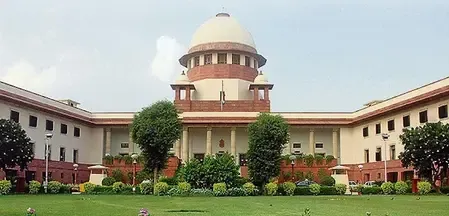
Synopsis
Key Takeaways
- The Supreme Court confirmed the conviction of Gurdeep Singh for conspiracy.
- Key witness testimony was pivotal to the case.
- The ruling underscores the accountability of jail officials.
- Circumstantial evidence can substantiate conspiracy charges.
- Exoneration in preliminary investigations does not prevent prosecution.
New Delhi, Aug 12 (NationPress) The Supreme Court has reaffirmed the conviction of a former official from Punjab's jail system for his role in facilitating the escape of an undertrial prisoner during a violent incident in 2010 involving two police escorts.
A Bench comprising Justices P.S. Narasimha and R. Mahadevan concluded that the evidence presented strongly demonstrated a prior agreement to act in concert between Gurdeep Singh, who was serving as the Assistant Superintendent of Ludhiana Central Jail, and the attackers.
In 2014, a Bathinda Fast Track Court sentenced Gurdeep Singh to a term of rigorous imprisonment lasting three years for various offenses under the Indian Penal Code, including Sections 307, 225, 186, 332, 353, and 120B. The Punjab and Haryana High Court later upheld this conviction and sentence in May 2023.
According to the prosecution, on November 30, 2010, police Head Constables Harjit Singh and Hardial Singh were transporting undertrial Kuldeep Singh from Ludhiana to Talwandi Sabo for a court appearance when Gurdeep Singh recommended a return trip in a private Tata Qualis rather than by bus. Near a village, two individuals in the backseat reportedly assaulted the constables using red chilli powder, a knife, and a kirpan to attempt to liberate Kuldeep Singh, also known as Deepi.
In its ruling, the Supreme Court pointed out that although key witnesses like Hardial Singh and the driver became partially hostile, Harjit Singh, the injured escort officer, provided “detailed, consistent, and credible testimony” implicating Gurdeep Singh directly.
The court found that Harjit Singh's testimony was adequate to uphold the conviction.
Disregarding the defense's claim that Gurdeep Singh's prior acquittal during a police investigation prevented his prosecution, the Justice Narasimha-led Bench referenced the Hardeep Singh vs. State of Punjab ruling, affirming that even individuals not named in the FIR or charge sheet can be summoned for trial if trial evidence indicates their involvement.
“The appellant's previous exoneration during the preliminary inquiry does not negate the judicial findings based on substantive trial evidence,” the ruling stated.
On the conspiracy aspect, the court reiterated that such offenses are “rarely provable through direct evidence” and can be established through circumstantial evidence, behavior, and coordinated actions.
Highlighting the convincing nature of the prosecution's evidence of a coordinated effort between Gurdeep Singh and the attackers, the Justice Narasimha-led Bench remarked, “The use of a private vehicle linked to the appellant, the involvement of unidentified individuals, the stop at a predetermined location under false pretenses, and the appellant's noticeable inactivity during the violent incident – despite holding an official position – all create a continuous chain of incriminating evidence indicating his involvement in the conspiracy.”
The apex court dismissed the defense's argument that no overt act was linked to Gurdeep Singh.
Citing several precedents, the Justice Narasimha-led Bench affirmed, “Not every conspirator must perform an overt act to be held responsible; the agreement itself constitutes the offense.”
It also mentioned that even if some witnesses turned hostile, “the testimony of a hostile witness need not be entirely discounted,” and a court may depend on credible parts of their testimony.
Concluding that Gurdeep Singh’s “actions before, during, and after the incident demonstrate his culpability under Section 120B IPC,” the Supreme Court upheld the findings of the lower courts.
“His intentional inaction, absence of injuries, and subsequent disappearance from the scene further substantiate the inference of his active participation. The appellant's conduct was not peripheral but central to the execution of the plan to enable the escape of undertrial Kuldeep Singh,” the court noted, rejecting Gurdeep Singh's appeal.
“Considering the serious nature of the crime committed by the appellant, particularly given his role as Assistant Superintendent of Jail – a position demanding the highest standards of integrity and adherence to the rule of law – this Court sees no mitigating circumstances to justify leniency in sentencing. [T]he appellant shall be taken into custody immediately to serve the remaining duration of his sentence,” the Supreme Court concluded.


